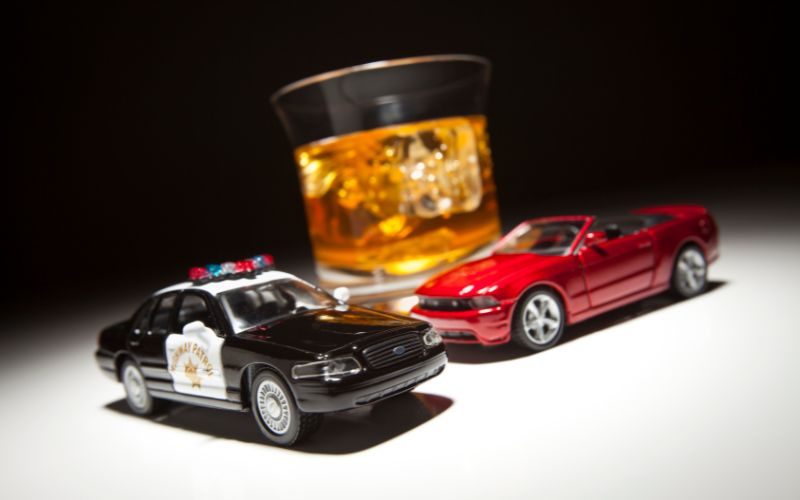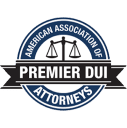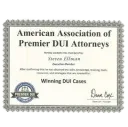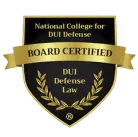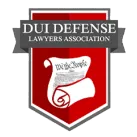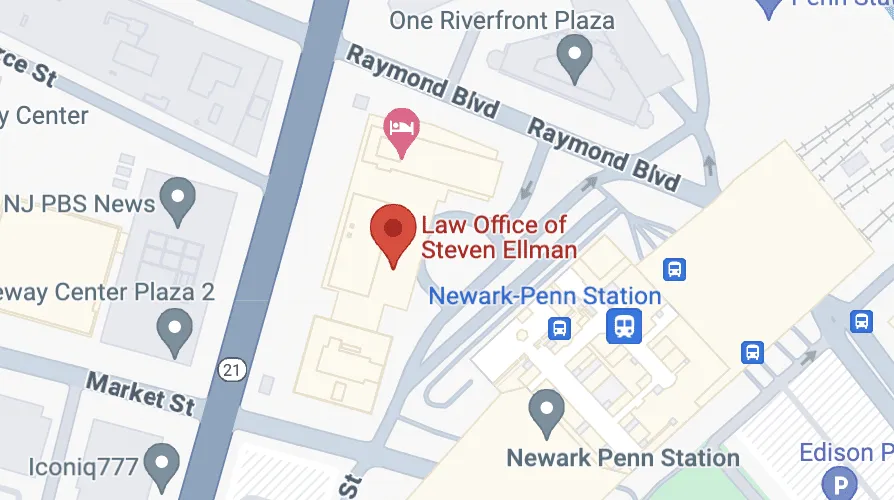How to Get a DUI Dismissed: Expert Tips and Legal Advice
How to get a DUI dismissed? Our expert guide offers the best legal strategies to help you fight your DUI charge effectively. Learn the secrets now.
Facing a DUI charge can be overwhelming, and you might feel like you have no chance of beating the charges. But did you know there are plenty of reasons why DUI charges get thrown out?
Today, we’re taking a closer look into the best legal strategies for how to get a DUI dismissed. We’ll cover essential tips, from understanding DUI laws in New Jersey to the role of legal representation in beating DUI allegations.
Common DUI Defense Strategies
One effective approach is to challenge the legality of the traffic stop. The police must have a valid reason to pull you over, such as observing a traffic violation or erratic driving. If there was no reasonable cause, any evidence gathered during the stop might be deemed inadmissible in court.
Another strategy is to question the accuracy of field sobriety tests. These tests assess balance, coordination, and the ability to follow instructions. And they can be subjective.
Factors like poor lighting, uneven surfaces, or even certain medical conditions can affect performance. Specifically, they can lead to false positives. Your attorney can argue that these tests were improperly administered or unreliable.
Breathalyzer tests are commonly used to measure BAC. But their accuracy can be challenged too. Several factors can influence the results, such as improper calibration of the device or operator error. Even residual alcohol in the mouth from recent drinking or using mouthwash can affect it.
Blood tests are more accurate. But they can also be disputed if there were errors in how the sample was handled or tested.
Procedural errors by law enforcement can also be a strong defense. This includes failure to read your Miranda rights, improper handling of evidence, or not following protocol during your arrest. If the police made any mistakes, it could lead to the suppression of evidence.
Sometimes, medical conditions or dietary factors can affect BAC readings. Conditions like acid reflux or diets high in sugar and carbohydrates can produce false positives on breath tests.
How To Get a DUI Dismissed
Having a skilled DUI attorney is vital when facing a DUI charge. A knowledgeable lawyer can guide you through the complex legal system.
The first benefit of having an attorney is their expertise in DUI laws. They understand the nuances and can use this knowledge to identify weaknesses in the prosecution’s case. They know what evidence to look for and how to challenge it effectively.
An experienced lawyer will start by thoroughly reviewing the details of your case. They will examine the police report, witness statements, and any test results. This helps them build a strong defense strategy.
For instance, they might find that the breathalyzer was not calibrated correctly or that the officer did not follow proper procedure during your arrest. These details can be critical in getting charges reduced or dismissed.
Another important role of your attorney is to negotiate on your behalf. They can engage in plea bargaining with the prosecutor to reduce the charges or penalties.
This can be particularly beneficial if the evidence against you is strong. A reduced charge might mean lesser fines or a shorter license suspension. It might mean avoiding jail time altogether.
Your lawyer also prepares you for court. They will explain the court process, what to expect, and how to present yourself.
This preparation helps reduce anxiety and makes sure you are ready for each step. During the trial, your attorney will present your defense, cross-examine witnesses, and argue on your behalf.
Their goal is to cast doubt on the prosecution’s evidence. They’re looking to convince the judge or jury of your innocence or the need for leniency.
Fight DUI allegations: Plea Bargains and Negotiations
In some DUI cases, negotiating a plea bargain can be a viable option. A plea bargain is an agreement between the defendant and the prosecutor.
The defendant agrees to plead guilty to a lesser charge in exchange for a more lenient sentence or the dismissal of other charges. This process can be beneficial, especially when the evidence against you is strong.
One common plea bargain in DUI cases is pleading guilty to a lesser charge, such as reckless driving. This charge typically carries less severe penalties than a DUI. It might involve a smaller fine, a shorter license suspension, or no jail time.
Accepting a plea bargain can also help avoid the uncertainty and stress of a trial. Your attorney plays a crucial role in plea negotiations. They’ll assess the strength of the prosecution’s case and advise you on whether a plea bargain is in your best interest.
If so, they will negotiate with the prosecutor to secure the best possible deal. This involves presenting mitigating factors, such as your clean driving record or any evidence that casts doubt on your guilt.
While plea bargains can be advantageous, they also have drawbacks. Pleading guilty to any charge can result in a criminal record, which might affect your employment and insurance rates. So it is essential to weigh the benefits and consequences carefully.
Your attorney can help you understand the implications and make an informed decision. In some cases, prosecutors may offer a plea deal that includes participation in a diversion program.
These programs often require completing alcohol education or treatment courses and may lead to the dismissal of charges upon successful completion. This option can be particularly appealing for first-time offenders, as it provides an opportunity for rehabilitation without a long-term criminal record.
Preparing for Court
The first step is to gather all the necessary documents and evidence related to your case. This includes the police report, breathalyzer or blood test results, and any witness statements. Your attorney will help you collect and organize these documents.
Next, it’s important to understand the court procedures. Your lawyer will explain what to expect during each phase of the trial, from the initial arraignment to the final verdict.
Knowing the sequence of events can help reduce anxiety and make the process more manageable. Your attorney will also advise you on how to dress and behave in court. First impressions can significantly impact the judge and jury.
Another crucial aspect of preparation is building a solid defense strategy. Your lawyer will review the evidence against you and identify any weaknesses in the prosecution’s case.
They might challenge the accuracy of the breathalyzer test, question the legality of the traffic stop, or highlight any procedural errors made by law enforcement. By carefully examining every detail, your attorney can develop a strategy that maximizes your chances of a favorable outcome.
Witnesses can also play a key role in your defense. If there were any witnesses to your arrest or the events leading up to it, your lawyer might call them to testify on your behalf.
Their statements can provide valuable insights and help create doubt about the prosecution’s version of events. Your attorney will prepare these witnesses, ensuring they are ready to answer questions confidently and accurately.
Trial Process and What to Expect
The trial begins with the arraignment, where you’ll be formally charged and asked to enter a plea of guilty, not guilty, or no contest. If you plead not guilty, the case will proceed to the pre-trial phase.
During this stage, both sides exchange evidence and file motions. This can include requests to dismiss evidence or the entire case based on procedural errors.
Once the pre-trial phase is complete, the trial itself begins. It starts with the selection of a jury, unless you choose a bench trial where the judge alone decides the case.
Both the prosecution and defense present opening statements, outlining their arguments and what they aim to prove. These statements set the stage for the evidence and testimonies that follow.
The prosecution presents its case first, calling witnesses such as the arresting officer and any experts who can speak to the accuracy of the breathalyzer or blood tests.
Your attorney will cross-examine these witnesses to challenge their credibility and the validity of their testimonies. The goal is to create doubt about the prosecution’s evidence and highlight any inconsistencies or errors.
After the prosecution rests, it’s your attorney’s turn to present your defense. This may include calling witnesses who can support your version of events, providing evidence that challenges the prosecution’s case, or presenting expert testimony that disputes the reliability of the tests used.
Your attorney will also cross-examine any witnesses called by the prosecution.
Once both sides have presented their cases, they make closing arguments. The judge then provides instructions to the jury, explaining the legal standards that must be met for a conviction. The jury deliberates and returns with a verdict.
If you’re found not guilty, you’re free to go. If found guilty, the judge will schedule a sentencing hearing.
Legal Advice for DUI
Understanding how to get a DUI dismissed involves knowing your rights, preparing a strong defense, and having skilled legal representation.
Steven Ellman is in the Top 10 among elite attorneys in New Jersey for having clients’ criminal charges dropped. He has secured favorable verdicts in DUI/DWI and traffic violation cases for people through all of New Jersey’s 21 counties.
Don’t let a DUI or a reckless driving charge leave you grounded. Get in touch today to find out how he can help you!

